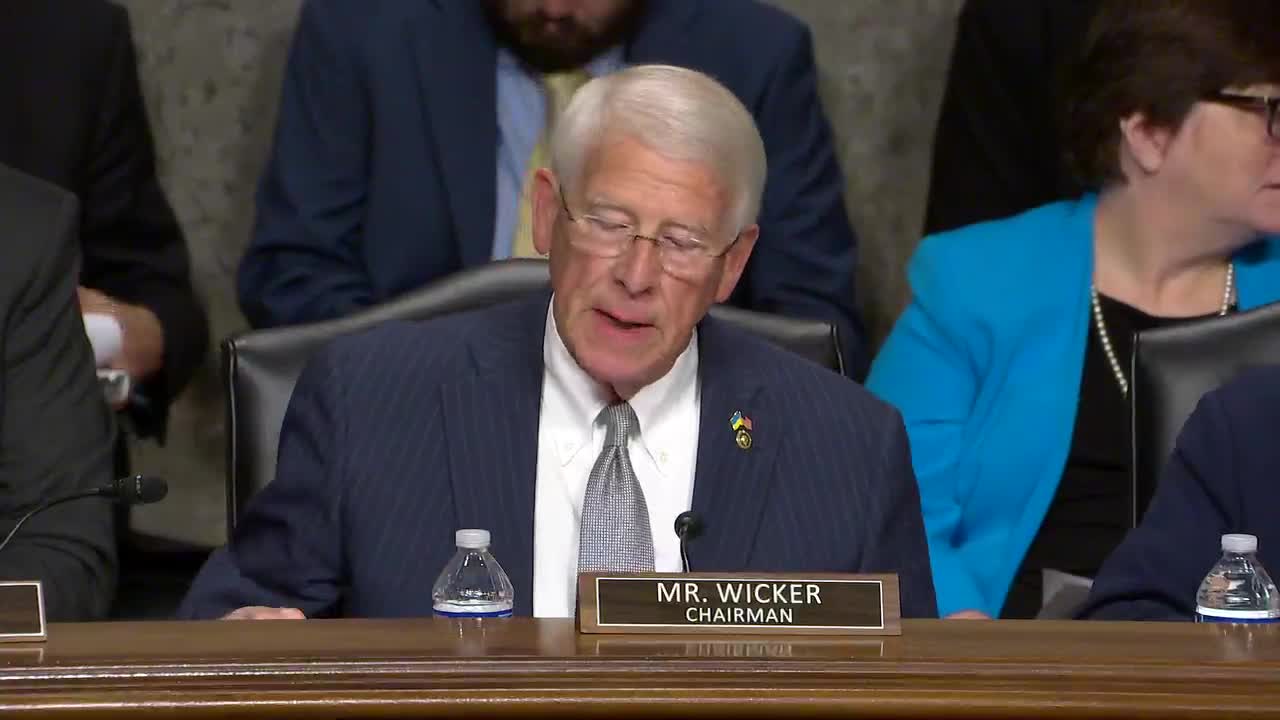Pentagon's JROC Seeks Reforms to Streamline Military Weapon System Approvals
September 11, 2025 | Armed Services: Senate Committee, Standing Committees - House & Senate, Congressional Hearings Compilation
This article was created by AI summarizing key points discussed. AI makes mistakes, so for full details and context, please refer to the video of the full meeting. Please report any errors so we can fix them. Report an error »

In a pivotal session of the U.S. Senate Committee on Armed Forces, the spotlight turned to the Joint Requirements Oversight Council (JROC), a key Pentagon body that plays a crucial role in shaping military capabilities. As the committee considered the reappointment of General Christopher J. Mahoney, USMC, for the position of Vice Chairman of the Joint Chiefs of Staff, discussions highlighted the pressing need for reform within the JROC.
The JROC, which is responsible for defining military needs for new weapon systems, has faced criticism for its lengthy approval processes. A 2021 Government Accountability Office (GAO) report revealed that the average time to approve military requirements often exceeds 800 days—far surpassing the targeted 100 days. This inefficiency has raised concerns among lawmakers, prompting calls for significant changes.
Senators expressed their commitment to reforming the JROC's operations through the proposed Forged Act. This legislation aims to streamline the approval process by removing the JROC as an approval authority. Instead, the focus will shift towards collaboration with Combatant Commanders (COCOM) to better identify and prioritize military needs. The goal is to transition from a bureaucratic review of paperwork to a more proactive approach in designing the future force.
As the committee deliberated, the urgency for these reforms became clear. With the National Defense Authorization Act (NDAA) on the horizon, senators emphasized the importance of moving swiftly to enact these changes. The discussions underscored a collective desire to enhance the efficiency of military procurement processes, ensuring that the armed forces are equipped to meet evolving challenges.
In conclusion, the meeting not only spotlighted General Mahoney's nomination but also served as a platform for addressing critical issues within military oversight. The proposed reforms to the JROC could reshape how the military identifies and acquires new capabilities, ultimately impacting national security and defense readiness in the years to come.
The JROC, which is responsible for defining military needs for new weapon systems, has faced criticism for its lengthy approval processes. A 2021 Government Accountability Office (GAO) report revealed that the average time to approve military requirements often exceeds 800 days—far surpassing the targeted 100 days. This inefficiency has raised concerns among lawmakers, prompting calls for significant changes.
Senators expressed their commitment to reforming the JROC's operations through the proposed Forged Act. This legislation aims to streamline the approval process by removing the JROC as an approval authority. Instead, the focus will shift towards collaboration with Combatant Commanders (COCOM) to better identify and prioritize military needs. The goal is to transition from a bureaucratic review of paperwork to a more proactive approach in designing the future force.
As the committee deliberated, the urgency for these reforms became clear. With the National Defense Authorization Act (NDAA) on the horizon, senators emphasized the importance of moving swiftly to enact these changes. The discussions underscored a collective desire to enhance the efficiency of military procurement processes, ensuring that the armed forces are equipped to meet evolving challenges.
In conclusion, the meeting not only spotlighted General Mahoney's nomination but also served as a platform for addressing critical issues within military oversight. The proposed reforms to the JROC could reshape how the military identifies and acquires new capabilities, ultimately impacting national security and defense readiness in the years to come.
View full meeting
This article is based on a recent meeting—watch the full video and explore the complete transcript for deeper insights into the discussion.
View full meeting